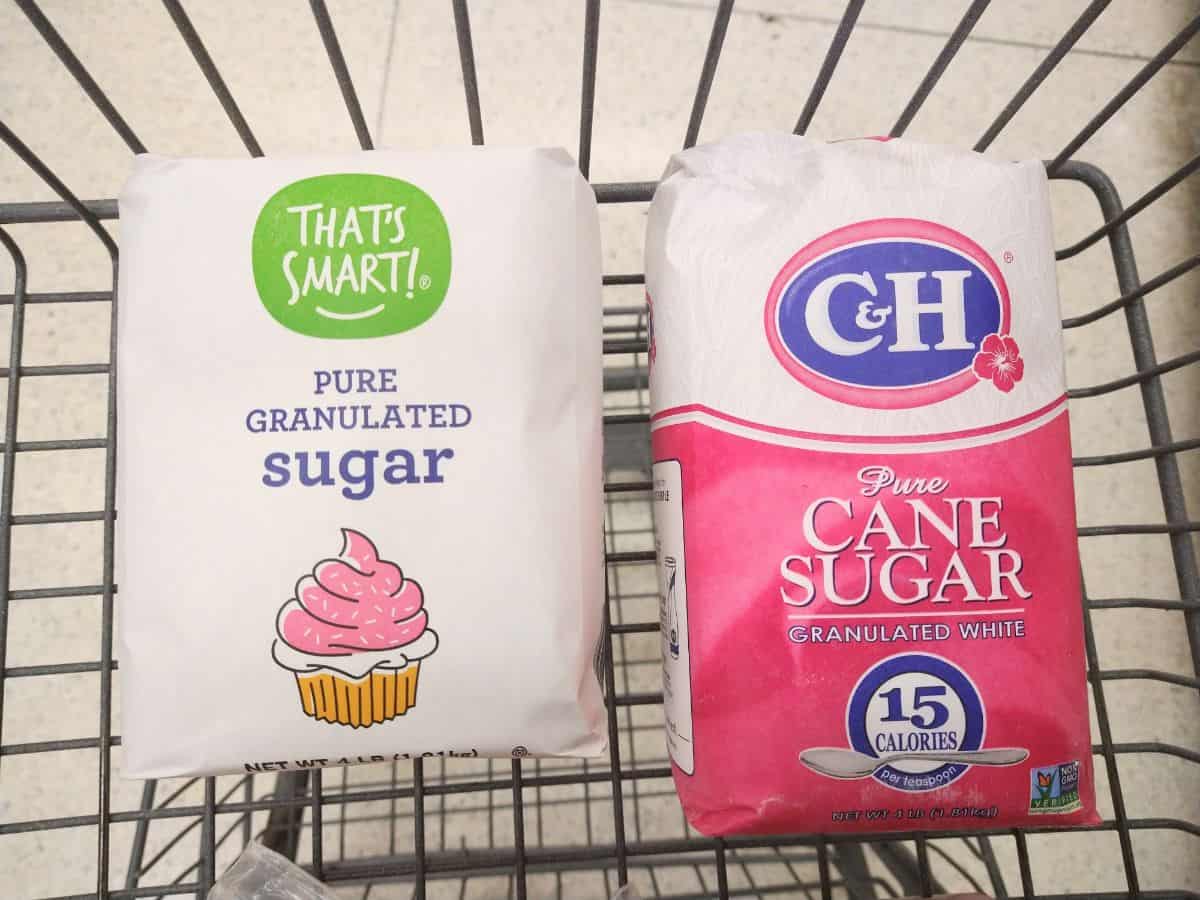Beet Sugar vs Cane: Which Sugar Is the Right Choice for Baking?
Beet Sugar vs Cane: Which Sugar Is the Right Choice for Baking?
Blog Article
The Excellent Dispute: Beet Sugar Vs Cane and Their Effect On Health
The ongoing debate surrounding beetroot sugar and walking stick sugar raises crucial inquiries concerning their corresponding health and wellness impacts and broader implications for consumer selections. While both sugar share a similar chemical structure, their beginnings and processing approaches may influence not only nutrition but additionally environmental sustainability. As health-conscious individuals consider the advantages of each choice, the ramifications of chemical direct exposure and farming methods enter emphasis. This discussion welcomes us to consider not simply the sweetness we pick, but the far-ranging impacts of those choices on our wellness and the planet. What might this indicate for future consumption patterns?
Summary of Sugar Resources
Sugar, a commonly eaten sugar, primarily originates from 2 major resources: sugar beetroots and sugar walking cane. Sugar walking cane prospers in tropical and subtropical climates, with major producers including Brazil, India, and China.
Alternatively, sugar beetroots are mostly expanded in temperate regions, with considerable production in countries such as the United States, France, and Germany. The beetroots are gathered from the ground, sliced, and subjected to a process that converts the extracted juice right into granulated sugar. While both sugar sources ultimately yield sucrose, their farming techniques, processing approaches, and geographic distributions differ noticeably.
These distinctions can influence not only the ecological influence of sugar manufacturing but also the financial aspects of sugar pricing and profession. Recognizing the origins of these sugar is critical for policymakers and consumers alike, as it lays the structure for notified discussions concerning their wellness effects and sustainability.
Nutritional Comparison
When examining the dietary profiles of beetroot sugar and cane sugar, both sources share a comparable composition as they mostly consist of sucrose. Sucrose is a disaccharide, composed of glucose and fructose, and is in charge of the sweetness connected with both sugars. The refining processes for both beetroot and walking cane sugar yield items that are primarily pure sucrose, with marginal traces of vitamins, minerals, or other nutrients.
In terms of calorie content, both beetroot and cane sugars supply approximately 4 calories per gram. Neither sort of sugar uses substantial dietary benefits past energy provision, as they do not have important vitamins or minerals. The presence of trace elements, such as magnesium, potassium, and calcium, can vary slightly between the 2, largely due to the agricultural methods and dirt problems in which they are expanded.
Additionally, the glycemic index values of beetroot sugar and walking cane sugar are comparable, suggesting similar results on blood sugar degrees. Overall, from a nutritional viewpoint, beetroot and walking cane sugars are functionally equal, adding primarily to caloric intake without using substantial wellness advantages over one another.
Health And Wellness Ramifications
The health and wellness effects of consuming beet sugar and walking stick sugar warrant cautious consideration, particularly given the rising occurrence of sugar-related health and wellness problems. Both kinds of sugar contribute similar calorie values and can cause boosted dangers of weight problems, kind 2 diabetes, and heart diseases when eaten in excess. The body sugars both metabolizes right into glucose, which can cause spikes in blood sugar degrees, bring about insulin resistance over time.
While there is ongoing discussion pertaining to the glycemic index of these sugars, researches recommend that both can adversely affect metabolic health if eaten in big quantities. beet sugar vs cane. In addition, the potential visibility of pollutants in beet sugar, such as chemicals from traditional farming methods, elevates additional health worries. On the other hand, walking cane sugar, especially when minimally refined, may offer a somewhat much more desirable account as a result of its natural state
Moreover, the intake of added sugars, despite the source, is connected to unfavorable health outcomes, consisting of dental problems and fatty liver disease. Moderation is crucial, and individuals need to be mindful of their overall sugar intake from all resources, eventually focusing on entire foods over added sugars for ideal health and additional resources wellness end results.
Environmental Influence
Comprehending the health and wellness effects of beetroot and cane sugar also brings about an examination of their ecological effect, which can dramatically affect agricultural sustainability and eco-friendly equilibrium. Both sugar sources have unique ecological footprints, shaped by their farming practices and geographical demands.

In contrast, beetroot sugar is generally expanded in pleasant climates and often includes diverse plant turnings. This practice can improve soil health and lower reliance on chemical inputs. Extensive beet farming can also lead to nutrient depletion and insect pressures if not managed sustainably.
Both sugar types present difficulties and chances for ecological stewardship. Promoting lasting agricultural practices and responsible sourcing can mitigate their impacts, guaranteeing that sugar manufacturing straightens with eco-friendly conservation and lasting food protection.
Customer Preferences
In the middle of growing awareness of wellness and ecological problems, consumer preferences for sugar kinds are significantly affected by understandings of health benefits, sustainability, and ethical sourcing. Beet sugar and cane sugar each present unique attributes that interest various customer demographics.
Health-conscious customers usually look at the nutritional accounts of these sugars, seeking choices great post to read viewed as less processed or even more natural. Walking cane sugar, commonly related to as the standard sweetener, is occasionally preferred for its viewed purity and simplicity. In comparison, beet sugar, which is frequently obtained from genetically customized crops, encounters apprehension amongst those concerned regarding GMOs.
Sustainability is one more considerable variable affecting customer options. As recognition of farming techniques expands, lots of customers choose items that align with environmentally friendly farming techniques. Cane sugar manufacturing, specifically when sourced from sustainable farms, can appeal to eco-conscious customers.
Ethical sourcing plays an essential function as well, with consumers progressively favoring products that support fair labor techniques. Qualifications such as Fair Trade can boost the beauty of walking cane sugar out there. Eventually, consumer preferences are formed by a complicated interaction of wellness, environmental, and ethical factors to consider, driving demand for both beetroot and cane sugars in diverse markets.
Final Thought
In verdict, the argument between beetroot sugar and walking stick sugar incorporates various elements, including dietary accounts, health and wellness implications, and environmental repercussions. beet sugar vs cane. While both sugars mostly are composed of sucrose and show similar calorie web content, problems concerning pesticide usage in beetroot sugar and the ecological impact of walking stick sugar monoculture warrant cautious factor to consider. As customers significantly prioritize sustainability and health and wellness, educated selections pertaining to sugar intake come to be crucial in promoting general wellness and environmental stewardship

Report this page